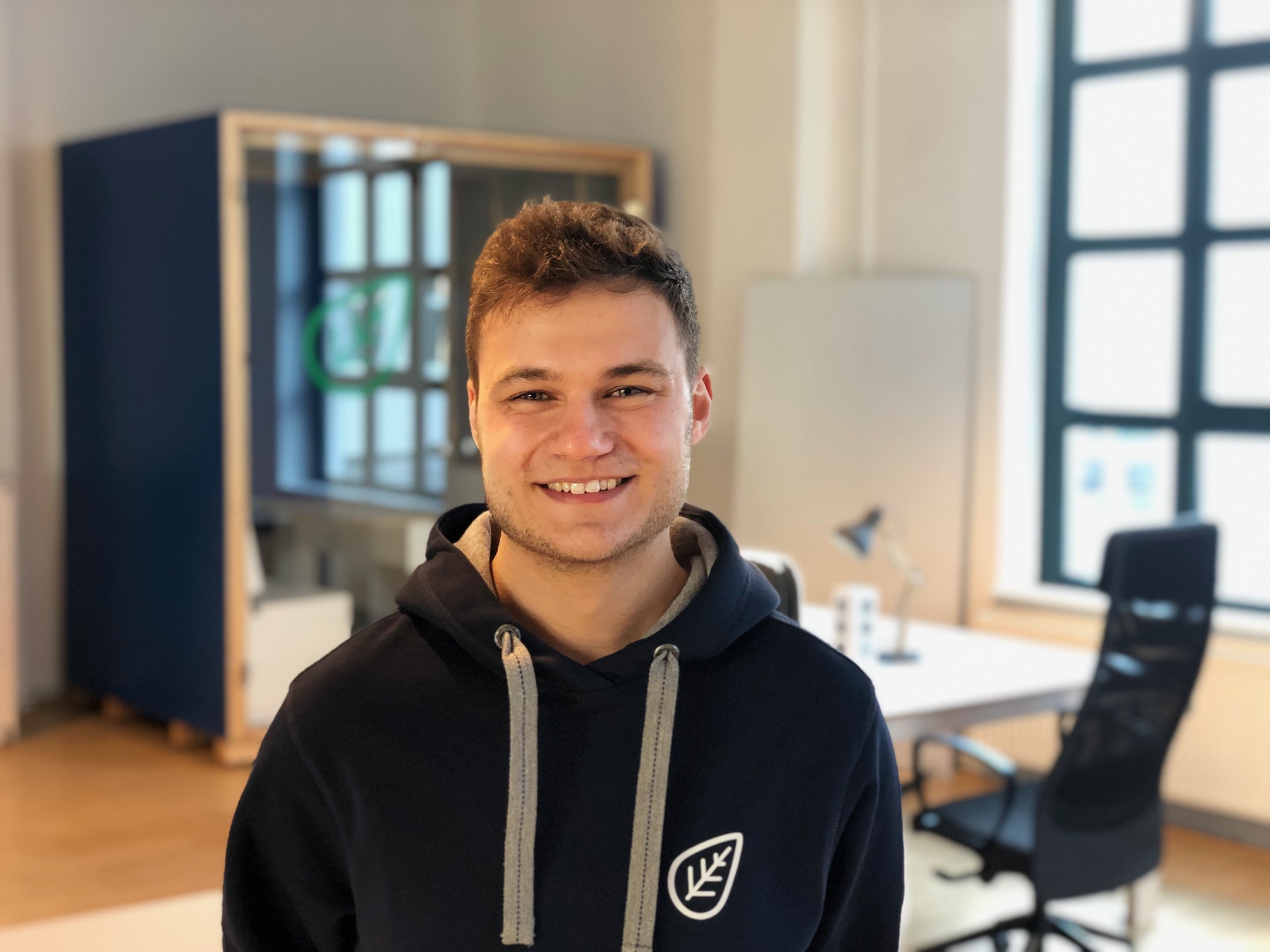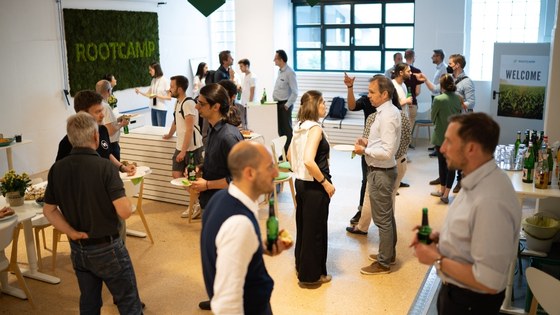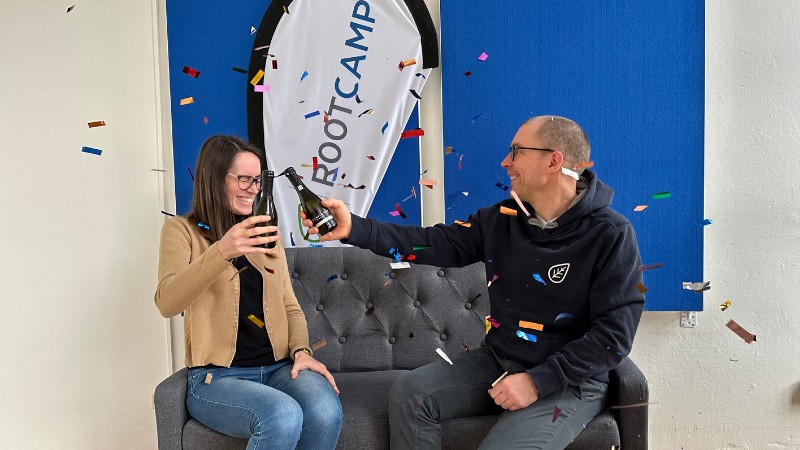As the world continues to face mounting environmental challenges, such as greenhouse gas emissions, loss of biodiversity, and land degradation, the need for sustainable solutions has become more pressing than ever before. One of the key areas that requires attention is the current linear material flow, which poses a significant challenge in achieving sustainability. Nutrients are critical for crop production, and with reserves of essential nutrients like phosphorus estimated to be fully exploited by the end of the century, waste streams must be reused to provide future raw materials. In this blog article, we'll explore why nutrient recycling and innovations in the circular economy are crucial in coping with increasing environmental problems and how they can pave the way for a more sustainable future. Get to know cutting-edge approaches 👇.
The Critical Need for Nutrient Recycling in the Circular Economy
Nutrient recycling refers to the process of recovering and reusing valuable nutrients such as nitrogen, phosphorus, and potassium from various waste streams to create new products or to replenish depleted soil. This process has become increasingly important in recent years as industries and corporates have recognized the environmental and economic benefits of sustainable nutrient management and different regulations at European level have been put in place.
RootCamp, in partnership with K+S, is on a mission to tackle the global challenge of sustainable nutrient management through the power of innovation. As part of our Batch#4 focus, we have identified the circular economy as a key area of exploration, and we are actively seeking out the most innovative startups in the field. To kick things off, we recently hosted a webinar titled "The circular economy: needs and challenges of nutrient recycling," where we dove deep into the world of nutrient recycling and scoped the exciting possibilities that lie ahead.
From wastewater to valuable products: let nature do iTs work
Industrial wastewater is a byproduct of various manufacturing processes that contains a mixture of pollutants, such as heavy metals, organic compounds, and chemicals. This type of wastewater can pose significant environmental risks if not managed properly. However, industrial wastewater also has significant potential for the circular economy. By treating and recovering the valuable resources contained in this wastewater, companies can reduce their environmental impact and create new business opportunities. ElbElement Bioscience is an early-stage startup that specializes in recovering various nutrients from wastewater through the use of highly specialized microorganisms and their cultivation. Based on more than 10 years of experience, ElbElement Bioscience is developing a unique, proprietary and scalable waste to value biotechnology turning wastewater into valuable products. This innovative approach can lead to the production of various biological and chemical products, such as palm oil, from the treated wastewater.
Plantilizer revolutionizing Nitrogen Recycling for Sustainable Agriculture
Nitrogen is an essential nutrient for all living organisms, as it plays a crucial role in the formation of proteins, DNA, and other vital biomolecules. While nitrogen is abundantly available in the atmosphere, it cannot be used directly by plants. The industrial energy-intensive Haber-Bosch process has been used for over a century to convert nitrogen gas from the atmosphere and hydrogen gas to ammonia - an essential nitrogen fertilizer. The irresponsible handling of nitrogen fertilizers causing an excess in the environment has negative impacts such as harmful algal blooms.
Plantilizer, a Hannover-based startup located in the same building as RootCamp, is driving sustainable agriculture forward by revolutionizing nitrogen recycling. By combining microorganisms and biochar from sewage sludge, the startup is pushing the boundaries of biological nitrogen fixation. This technology brings nutrients from waste back into the agricultural production cycle, while also increasing the amount of nitrogen stored biologically in the soil. Plantilizer has focused on promoting the symbiotic relationship between legumes and soil bacteria rhizobium, which can fix nitrogen gas and make it available for plants.
Emschergenossenschaft Lippeverband leads joint effort to solve phosphorus challenge in agriculture
Phosphorus is a crucial macronutrient required for plant growth and is under tremendous pressure due to the depletion of its reserves. Some researchers predict that phosphorus could be exhausted within this century, leading to significant challenges for agricultural production. Currently, sewage sludge is used to provide plants with phosphorus, but it contains contaminants like microplastics and heavy metals, making it unfit for direct use. As a result, direct use will be prohibited in Germany by 2029/2032, forcing wastewater companies to find innovative solutions for phosphorus recycling.
While there is no standard method for phosphorus recycling yet, the Emschergenossenschaft Lippeverband, a public water association responsible for the water cycle from catchment to wastewater treatment, has partnered with several wastewater treatment companies and research institutions such as Fraunhofer ISI and RWTH Aachen University to develop innovative solutions collaboratively. The partnership is focused on finding sustainable solutions for phosphorus recycling from sewage sludge for agricultural use.
Sustainable potassium fertilizer from battery waste streams
For Mathias Huebner, Head of Business Implementation at K+S the drivers on circular economy for K+S are for instance tightening of regulations in waste management. During the webinar, he explains that stricter regulations around waste management can pose a significant threat to companies, increasing the cost of waste disposal and reducing the availability of landfill space.
“If you don’t find a suitable way to get your disposals recycled or reused, there might be the risks that regulations forces you to stop your operations. That's why we are looking for startups showing us new ways of recycling or producing nutrients from waste streams,” says Mathias Huebner.
By shifting towards a circular, resource-recovery model, companies like K+S can reduce waste, lower their environmental impact, and create new business opportunities. K+S, as a leading producer of potassium and magnesium fertilizers, is collaborating with the Swedish startup Cinis Fertilizer to develop an innovative solution for creating sustainable potassium fertilizer. Potassium is crucial for plant growth. By utilizing sodium sulfate waste streams from electric battery production, Cinis Fertilizer's patented technology is able to replace the energy-intensive Mannheim process for producing potassium sulfate. This approach significantly reduces water and energy usage while providing a scalable solution for the growing battery industry. The partnership between K+S and Cinis Fertilizer marks a major step towards a circular economy for potassium, benefiting both agriculture and the environment.
What's next in Innovation Hub RootCamp
The webinar with more insights about nutrient recycling is available on vimeo.
The application period for our Batch#4 just closed. We are flashed by the number of applications! Now, the RootCamp team and our partners are going deep into the selection process. The acceleration program lasts from mid of April until the end of August 2023 and supports selected startups with a tailor-made program. If you want to know which promising circular economy startups are joining Innovation Hub RootCamp then subscribe to our newsletter to be one of the first to know. We believe that by bringing together the brightest minds in the industry, we can drive meaningful change and create a more sustainable future for all. So stay tuned!
/rootcamp_logo_white_2022.png?width=2123&height=630&name=rootcamp_logo_white_2022.png)

/RC%20logo%202022.png?width=2325&height=703&name=RC%20logo%202022.png)




